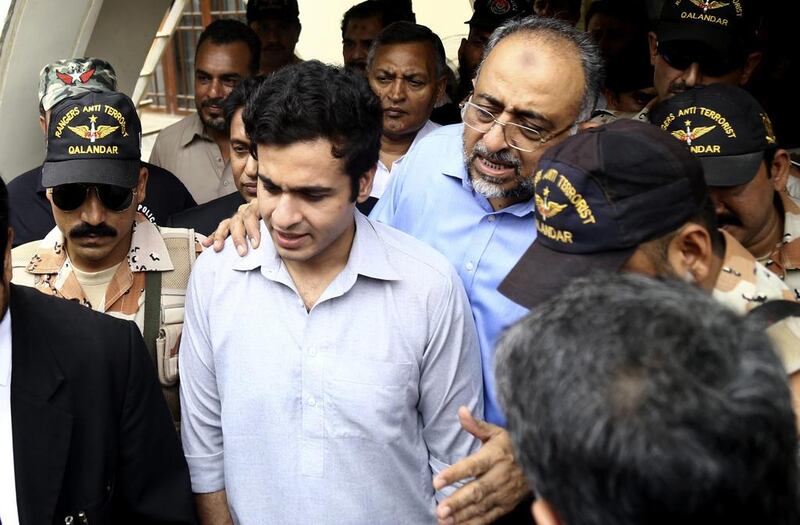On June 20, Owais Shah, a young lawyer and son of the chief justice of Sindh high court, was kidnapped in broad daylight in Karachi. As expected, he was recovered by the army, and restored to his family on July 19.
The event deserves the attention and concern it is receiving from all quarters. But before discussing its significance, I wish to briefly dwell on the ridiculous.
Following the kidnapping, lawyers throughout the country went on strike.
Why should lawyers strike if the son of a provincial chief justice is kidnapped? And consequently, ensure that justice is denied to the people for the duration of their strike, because that is all that they achieved? Isn’t that to be lamented – the needless denial of justice over four days?
Now, let’s discuss the significance of Owais Shah’s kidnapping.
From all reports, the kidnapping was very well-executed. That points at professional kidnappers, whether criminals or officials of some secret agency.
The most common reason for kidnapping is ransom. But, if this was for ransom, why target Owais?
Even if he is among the highest paid lawyers, neither he nor his father, nor both together, would be as rich as many others in Pakistan.
However, no ransom demand was received in the entire period of his captivity.
If ransom is eliminated, then the motive either has to be punitive or a threat to coerce.
If it was punitive, he would never have been recovered alive.
The most likely target is his father, the chief justice of Sindh high court – and it must be some legal case of immense significance for such a measure to have been adopted, because the conclusion I have arrived at is one all and sundry should have reached.
For those wondering why this kidnapping was given special importance, the following is the reason.
Kidnapping to coerce a judge is not unknown in the world. However, it is not common because the moment the kidnapping becomes public knowledge, the judge is not in a position to issue a suspect judgement.
But, while this kidnapping was carried out very professionally – a fact that the police acknowledge – it was carried out in daylight, without even an attempt to hide who was kidnapped.
In the event of such a professional kidnapping, if the purpose was to coerce one judge into being unjust, the kidnapping should have been the most well-guarded secret in Pakistan.
Since it was intended to be made public and result in the hue and cry that it caused, the only conclusion I can come to is that the threat and coercion were intended to petrify not just one judge, but any and every judge who might sit on a certain case.
That was the point our honourable chief justice was seeking to make when he commented that this kidnapping has scared the judiciary.
Under the given circumstances, I find it highly unlikely that this kidnapping was carried out by a state agency. The state had too much to lose by doing so and nothing to gain from committing such an act.
Proceeding with the same reasoning, two individuals due for trial, whose revelations threaten a motley group of corrupt politicians, immediately come to mind.
Could this be the connection? I think it is a very distinct possibility.
As expected, Pakistan's security forces have recovered Owais alive and in good health. But who will help recover the country's judiciary from the abject and justified fear that this incident must have induced in them?
Hopefully too, the security agencies will also capture the kidnappers some day.
But will they be able to identify, apprehend and ensure that those who desired to instil this fear are prosecuted and punished?
One can but hope. But what hope is there where there is hopelessness?
Brig Shaukat Qadir is a retired Pakistani infantry officer





